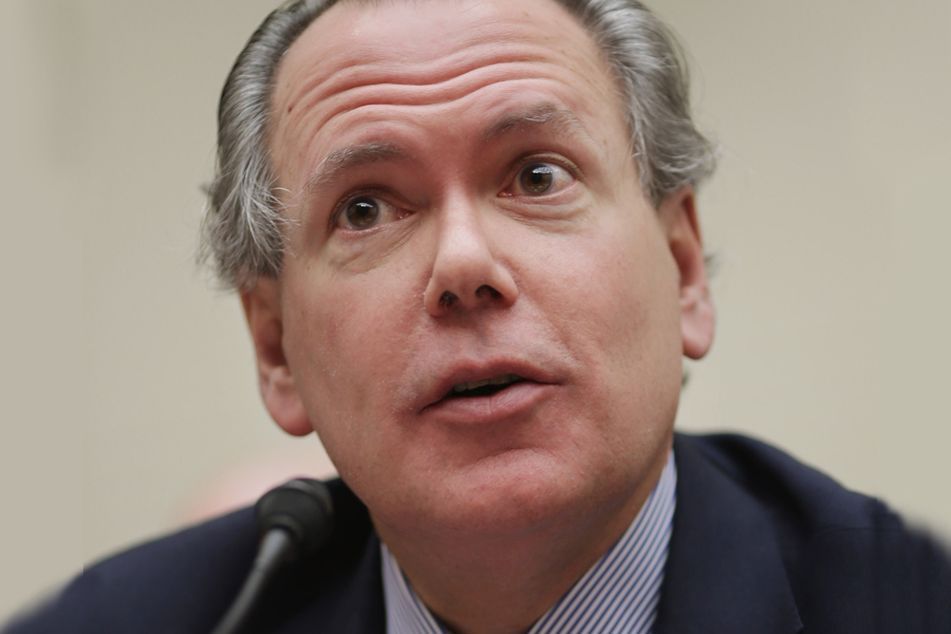Opponents to DOL fiduciary rule say tweaks aren’t enough

Witnesses for and against the Labor Department's fiduciary proposal, including SIFMA's Ken Bentsen Jr., square off over the rule requiring brokers to act in clients' best interests.
Even after the Labor Department modifies its proposal to curb conflicts of interest for brokers working with retirement accounts, it may not be enough to satisfy opponents.
In the first day of hearings on the rule at DOL headquarters in Washington on Monday, DOL deputy assistant secretary Timothy Hauser sketched a potential simplified contract that would allow financial advisers flexibility in their compensation arrangements as long as they act in the best interests of their clients.
“Suppose the exemption simply said you have to make an up-front binding commitment to adhere to that best-interest standard?” Mr. Hauser asked Securities Industry and Financial Markets president and chief executive Ken Bentsen Jr.
“You can’t have policies and procedures that incentivize people to act contrary to the best-interests standard,” Mr. Hauser said, “That’s it.”
He added that the standard would only apply to recommendations that are made “in the Finra sense,” referring to the brokerage industry self-regulator’s rules.
“Would that be acceptable?” Mr. Hauser asked.
Mr. Bentsen, the head of the largest brokerage industry trade association, hedged.
“We would certainly be willing to discuss,” he said.
But in his testimony, Mr. Bentsen was unyielding. He said SIFMA members have indicated that they will not be able to implement the rule and that it would make giving and receiving investment advice much more expensive.
“We believe the rule as drafted will reduce choice and increase costs, and individual savers would have a more complex and confusing landscape,” Mr. Bentsen said.
In an interview after his testimony, Mr. Bentsen said DOL would have to overhaul the rule to get SIFMA’s support.
“There’s so many changes that have to be made in our view, I don’t know whether that would consist of completely redoing it or not,” he said. “But it’s so substantial … that at the very least, I think you’d have to let the public look at it again to see what the impact is.”
Mr. Bentsen was one of dozens of witnesses who will testify about the rule before a panel of DOL officials over the next four days. The rule was proposed in April with White House backing. An initial comment period ended July 21,generating more than 2,500 letters.
Another comment period has opened and will run until two weeks after the transcript of the hearings is published. A final rule could come out next spring, as the DOL tries to get it on the books before the end of the Obama administration.
The DOL asserts that rule would reduce incentives for financial advisers to put clients into high-fee products that erode their retirement savings. The proposal is the agency’s second attempt to expand the number of advisers who must act as fiduciaries. The first proposal was withdrawn in 2011 amid fierce industry protest.
“The status quo doesn’t adequately protect today’s retirement investors, and it undermines the protective purposes of the broad fiduciary provisions of [federal retirement law] and the tax code,” said Phyllis Borzi, DOL assistant secretary and head of the Employee Benefits Security Administration.
The hearing panels often consist of witnesses on opposite sides of the debate. In one panel, there was a disagreement about whether the rule’s definition of advice that falls under the best-interest, or fiduciary, standard is clear in all interactions with investors.
“The proposal is written with ambiguity about whether fiduciary status attaches,” said David Blass, general counsel at the Investment Company Institute, a trade group for mutual fund companies.
Sitting two seats away from him, Barbara Roper, director of investor protection at the Consumer Federation of America, countered Mr. Blass.
“You have gotten the guidance right,” Ms. Roper told the DOL officials. “The definition is right on the money, as far as we’re concerned.”
There also were differences of opinion within the industry.
Nick Lane, head of U.S. Life and Retirement at the giant insurer AXA, said the rule is “unworkable” and would force brokers to abandon small retirement accounts.
“The average American is left with a website,” said Mr. Lane, who also is chairman of the Insured Retirement Institute.
But Raymond Ferrara, chairman and chief executive of ProVise Management Group, said his firm has been adhering to a fiduciary requirement similar to DOL’s by virtue of his advisers holding the certified financial planner designation. That credential has a fiduciary-duty requirement.
“The argument that this rule will diminish the availability of services to middle-class Americans is simply not credible,” said Mr. Ferrara, a former chairman of the Certified Financial planner Board of Standards Inc. “ProVise has successfully served middle-class investors under a fiduciary standard for years.”
Learn more about reprints and licensing for this article.








